What Is The Legal Status Of Human Growth Hormone In The United States?

Legal Status of Growth Hormone (HGH) Replacement Therapy
Is Human Growth Hormone Injection Therapy Legal?
Short Answer: Yes!
Long Answer:
Human Growth Hormone is Food and Drug Administration-approved for three uses:
HGH Hormone Replacement Therapy is legal for the treatment of Idiopathic Short Stature in children
Human Growth Hormone HRT is legal for the treatment of physiological wasting associated with the AIDS Virus
HGH is legal for use in patients that suffer from a diagnosable HGH Deficiency
Human Growth Hormone Deficiency is easy to diagnose, and if a patient does indeed suffer from the disease, then HGH Hormone Replacement Therapy can be used to restore optimal hormone balance.
What is Human Growth Hormone?
HGH is one of the most important hormones produced by the human body. During puberty, Human Growth Hormone is the catalyst that causes us to grow to our final adult height during youth. Although HGH is most vital during these years of initial development, the hormone plays a significant role in human health throughout the lifespan.
The problem is that, like many other hormones the body secretes, we lose our ability to manufacture Human Growth Hormone efficiently as we age. This  is a proven fact, and there is a mass of clinical evidence to prove it.
is a proven fact, and there is a mass of clinical evidence to prove it.
Medical research shows that Human Growth Hormone secretion begins to decline during the twenties at a rate of around fifteen percent every ten years. This is a constant that continues to degrade human health throughout the lifespan. It is usual for endogenous HGH levels to be 75% lower than HGH secretion in young and healthy adults.
Many factors lead to this decline, but the primary reasons are related to precursor hormones released by the hypothalamus, known as Hypothalamic Releasing Hormones.
Growth Hormone-Releasing Hormone and Somatostatins
The most common of these hormones is Growth Hormone-Releasing Hormone, but some other peptide hormones also contribute to this decline. In addition to a decline in HGH precursor hormones, the human body also slowly builds up an unhealthy number of what are known as somatostatins.
Somatostatins are intended as a feedback mechanism of the body to regulate Human Growth Hormone production, but it seems that as we age, these forces of negative feedback start to become more dominant and prevent our bodies from producing healthy levels of Human Growth Hormone.
HGH Deficiency Usually Not the Result of Pituitary Insufficiency
Usually, HGH Deficiency has nothing to do with the health of the pituitary gland. Actually, animal testing has shown that the pituitary gland seems to be able to produce healthy levels of Growth Hormone throughout the lifespan if it has been provided the proper stimuli.
Most tests for HGH Deficiency that involve direct stimulation of the pituitary gland will prove nothing in most cases because even though a patient may be suffering from a genuine deficiency due to miscues from the hypothalamus, a deficiency will not manifest itself through the direct testing of the pituitary gland.
Benefits of Human Growth Hormone HRT
Hormone Replacement Therapy provides several benefits for patients who suffer from HGH Deficiency, including:
Enhanced protein synthesis and physiological rehabilitation
Improved memory and alertness along with enhanced cognitive function
More robust immune system and ability to combat infections
Increased sleep quality
Lower risk of injuries as a result of falls
Increased bone density and lower risk of osteoporosis
Improved cardiovascular health (reduced risk of inflammation, hypertension, hardened arteries, and diabetes)
Reduced risk of heart attack and heart failure
Enhanced sexual ability
Reduction in mood disorders with less anxiety and depression
The increased overall quality of life
So When Is HGH Illegal?
Although there are several beneficial and legal uses for Human Growth Hormone, HGH is not legal for use as a performance-enhancing supplement. It is well known that Human Growth Hormone has been used illicitly for decades to improve athletic performance, but HGH usage for this purpose is illegal.
Human Growth Hormone has been shown to enhance muscle mass in healthy patients as well as increase the rate at which injuries heal, and for this reason, Bio-Identical HGH is highly sought after in the athletic community, despite the legal risks.
 Human Growth Hormone for Performance Enhancement seems to most often be used among weightlifters, football players, and endurance athletes such as cyclists and runners. As a result of athletes abusing HGH, the federal government passed a law prohibiting Human Growth Hormone usage for any purpose not approved by the Food and Drug Administration.
Human Growth Hormone for Performance Enhancement seems to most often be used among weightlifters, football players, and endurance athletes such as cyclists and runners. As a result of athletes abusing HGH, the federal government passed a law prohibiting Human Growth Hormone usage for any purpose not approved by the Food and Drug Administration.
Because of the potential benefits of Human Growth Hormone, HGH is often referred to as an Anti-Aging treatment.
Although this is technically very true, it should be noted that Human Growth Hormone produces age alleviating outcomes as a result of restoring healthy hormone balance, so utilizing Human Growth Hormone for purposes of Anti-Aging is perfectly legal if a patient suffers from a genuine HGH Deficiency. Human Growth Hormone Replacement
Therapy isn't simply masking the effects of the aging process but actually helping the body revert back to a younger and healthier state.
International Medical Community Ahead of the Curve Regarding HGH HRT
Most medical research regarding the use of Human Growth Hormone as a treatment for common symptoms of the aging process has been conducted primarily by researchers in Australia, Asia, and Europe.
The United States medical community is much more insular regarding the potential of HGH for Anti-Aging and tends to disregard the findings of the international community regarding the utilization of HGH Treatments for this purpose.
Although the term Human Growth Hormone is a beautiful term to describe the functions of HGH while we are in the process of experiencing puberty, in total, the hormone is unfortunately named.
HGH Not Just the Growth Hormone
Human Growth Hormone plays a role in several vital functions throughout the human life span, but the term Human Growth Hormone limits the full conceptions of the hormone's epic utility.
HGH is vital for growth, but many other hormones also play a role in the process. Although HGH Deficiency can lead to dwarfism and short stature, this condition can also result from Thyroid Hormone Deficiency. Anabolic Steroids such as Testosterone also play a vital role in physiological growth.
Although we associate HGH with growth, it would be most beneficial and all-encompassing to conceptualize Human Growth Hormone as a metabolism support hormone vital for optimal health and proper metabolism throughout the lifespan.
HGH Approved to Treat HGH Deficiency Resulting from Hypothalamic Insufficiency
The Food and Drug Administration approves the usage of HGH Injections as a means to treat Human Growth Hormone Deficiency resulting from hypothalamic insufficiency. In our prime, the pituitary gland releases around 1.5-2 units of Human Growth Hormone daily.
One unit of HGH equals one-third of a milligram. When the pituitary gland releases this level of Human Growth Hormone, the body is in a state of optimal hormone balance, allowing us to live an energized and empowered life.
A number of the conditions that are associated with old age are intricately correlated with innate Human Growth Hormone levels. As HGH levels decline with age, these symptoms become more and more pronounced. Cardiovascular issues start to rise, weight control becomes problematic, and muscle mass declines. These are only three of the most easily observable symptoms of HGH Deficiency.
Evidence Proves HGH Is Effective
A large volume of evidence suggests that HGH Hormone Replacement Therapy alleviates or resolves several symptoms of the aging process. These benefits also occur when using safe and low levels of Human Growth Hormone to replicate the body's natural chemistry. A replenishing dose of Human Growth Hormone is considered a daily injection of 1-1.5 units of the hormone daily.
How Can I Get HGH Injections?
There are three essential steps to obtaining a prescription for HGH Deficiency. First, the patient must express symptoms of Human Growth Hormone Deficiency. Different patients react to declining levels of Human Growth Hormone differently; one patient may display no symptoms or minor symptoms while another expresses significant symptoms due to the same underlying level of deficiency.
After recognizing that HGH Hormone Replacement Therapy may be a potential treatment option, the second step is that a patient undergoes a routine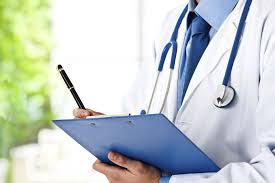 physical for a physician to learn about the patient's general physical condition.
physical for a physician to learn about the patient's general physical condition.
Third, the blood must be tested for Human Growth Hormone deficiency. Routinely, the physician will draw a blood sample and send it to a third party for diagnostic testing. After this point, your prescribing physician will have the tools he or she needs to make a fully-informed diagnosis.
If both the physical and the laboratory test show that you have a clinically low level of Human Growth Hormone, then you are a prescribable candidate for HGH Injections.
Although the standard HGH dose ranges between 1 and 1.5 units of Human Growth Hormone, for some patients with extreme deficiencies, two units can be administered daily.
When administering two units per day, it is essential to regularly undergo Insulin-like Growth Factor 1 testing to ensure that the patient is not receiving too much Human Growth Hormone. From a clinical perspective, it is necessary to ensure that HGH levels now exceed 300 ng/ml due to HGH Hormone Replacement Therapy.
This level is considered healthy and physiologically safe for patients. There is evidence that daily HGH injections exceeding two units per day can lead to unwanted side effects.
Early Studies Accidentally Used too much HGH
Although during original studies regarding Human Growth Hormone, side effects were a predictable and relatively common occurrence, the treatment is exceedingly safe today.
Many original studies used injections of human growth hormone that were much higher than those that the body experiences typically. Although HGH overdose did lead to side effects, most side effects were completely reversible either by decreasing the dose, administering smaller doses, or taking short breaks from therapy.
Although injections are administered daily, there are generally one or two rest days per week to help prevent the occurrence of side effects and also to help the pituitary gland continue to produce endogenous Human Growth Hormone. Because of the side effects that resulted from these original studies, many scientists were critical of the concept of Human Growth Hormone Replacement.
The problem with the modern American perception of Human Growth Hormone is that most doctors and researchers who object to HGH Hormone Replacement Therapy reject it based on the flawed science of these early clinical trials.
They do not recognize that the adverse effects of HGH Injection are caused by overdose and that new research involving more deliberate dosing did not result in the same side effects.
Original researchers provided HGH in excessively high amounts and did not realize the potential side effects that would result. Some of the studies are used to say that Human Growth Hormone Replacement Therapy is unsafe to involve doses that are ten times higher than what would be considered physiologically normal.
Negative results such as those experienced by those who used such extreme levels of Human Growth Hormone would be experienced in any vital hormone which was provided in such overwhelming amounts.
FDA Strongly Affirms HGH Hormone Replacement Treatments
The Food and Drug Administration has made it clear that they believe the average and restorative doses we recommend are entirely safe.
The only circumstances under which the FDA considered doses of more than two daily units as safe is with the intent to spur growth in children with an HGH Deficiency resulting in idiopathic short stature.
This treatment is mainly cosmetic and aesthetic in nature. Idiopathic short stature is not linked to any adverse physiological condition, but most parents want their children to grow up as tall as they are meant to be.
One could argue that if the increased dosage requirement for children with HGH Deficiency is considered safe, then the lower level used for patients with Adult-Onset Human Growth Hormone Deficiency is likely just as safe and safer.
Safe Doses Equal Few, If Any, Side-Effects
If the replacement dosage of Human Growth Hormone Replacement Therapy does not exceed endogenous hormone levels released by the pituitary during early adulthood, there is negligible potential for the symptoms of abuse or overdose to appear. When the body is not absolutely flooded with HGH, as is the result of HGH abuse, the human body has natural internal feedback mechanisms which can ensure that the body gets precisely the level of 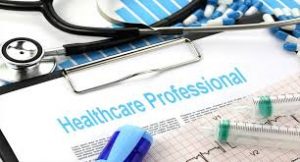 Human Growth Hormone that it needs to function optimally.
Human Growth Hormone that it needs to function optimally.
The levels of Human Growth Hormone we release in our twenties should be perfectly safe to recreate later in our lives when our bodies lose their ability to produce appropriate hormone levels for themselves. Thus far, in the body of evidence regarding Human Growth Hormone, there is no indication that the use of HGH Hormone Replacement Therapy produces any serious adverse effects when used to restore youthful hormone levels in deficient adult patients.
On the other hand, many studies show that Human Growth Hormone is safe and beneficial when used as a low-dosage treatment for HGH Deficiency. As men and women grow older, Growth Hormone levels begin to decline.
HGH Hormone Replacement Therapy Works By Copying the Body's Natural Chemistry
When using doses that mimic normal human physiology, the body has the ability to regulate the uptake of Human Growth Hormone and IGF-1 at target organs. There is a general consensus in peer-reviewed journals that Growth Hormone HRT provides significant benefit for minimal harm when used in daily doses of 2 units or less per day.
Two Main Forms of Human Growth Hormone Deficiency
There are two main forms of HGH Deficiency: Primary and Secondary. Primary HGH Deficiency is the result of pituitary insufficiency. Most adult patients have healthy pituitary glands that are capable of producing normal levels of Human Growth Hormone. Secondary HGH deficiency results from an insufficiency of the hypothalamus in which Growth Hormone-Releasing Hormone, or other hormones which trigger the production of Human Growth Hormone, are deficient.
Secondary HGH Deficiency can also result from harmful feedback mechanisms that prevent the pituitary from releasing sufficient Human Growth Hormone. The vast majority of adult patients suffer from secondary HGH Deficiency. Throughout our entire lifespan, the human pituitary retains the ability to secrete normal Human Growth Hormone levels.
Human Growth Hormone Replacement Therapy is intended to treat Secondary HGH Deficiency, which has been caused by hypothalamic insufficiency.
HGH Deficiency Generally Not the Fault of the Pituitary Gland
Some medical professionals falsely believe that Human Growth Hormone Deficiency is the result of a pituitary gland failure and that the pituitary should be tested for functionality before an accurate diagnosis of HGH Deficiency can be treated.
This ignores the actual root cause of the condition, which is related to the hypothalamus rather than the pituitary.
Generally, tests of the pituitary gland will result in false negatives, so the most accurate diagnosis of HGH Deficiency will result from blood tests for serum IGF-1 levels. Testing the pituitary for HGH deficiency results in a false negative because the test provides synthetic analogs of hypothalamic stimuli, which are shown to decline with age.
The pituitary retains the capacity to secrete sufficient levels of Human Growth Hormone throughout the lifespan, but only if the proper triggering hormonal exchanges occur.
Study Confirms Healthy Pituitary Glands in Most Adults
One particular study goes into more detail. Its author (Miller) claims that new clinical and scientific evidence shows that GH-RH can be used to study the physiological pathways which encourage healthy Human Growth Hormone production, but the HGH precursor is not helpful as a test for discovering an 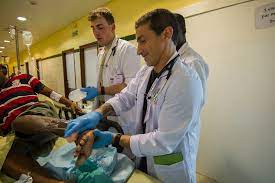 active state of Human Growth Hormone Deficiency.
active state of Human Growth Hormone Deficiency.
He goes on to say that as the aging process takes place, the human body still has access to the same levels of Human Growth Hormone that were available in young adulthood and that HGH Deficiency is the result of negative feedback as a result of somatostatinergic function and reduces the secretion of Growth Hormone-Releasing Hormone.
Another Study Agrees
Another study financed by the National Institute of Health agrees that Human Growth Hormone Deficiency results from Hypothalamic Insufficiency and is not the result of issues directly related to the pituitary gland's function.
This study also provides significant evidence that the injection of GH-RH to older men of good health has been shown to reverse Human Growth Hormone Decline that occurs as a result of aging.
This is further evidence that diagnosing HGH deficiency through pituitary stimulation is useless because of the pathological origin of the disorder.
As a result of studies such as this one, a drug named Sermorelin Acetate was developed as a treatment for Human Growth Hormone deficiency. Sermorelin Acetate is a synthetic hormone that mimics the function of GH-RH.
Although Sermorelin Acetate is a truncated form of its derivative hormone, it has the capability to function identically in the human body to Growth Hormone-Releasing Hormone.
HGH and the Endocrine Society
The Endocrine Society has released a set of Clinical Practice Guidelines regarding diagnosing Human Growth Hormone Deficiency. They state that because Growth Hormone-Releasing Hormone directly contributes to pituitary function, it can cause patients with HGH Deficiency to appear normal when their pituitary function is tested using GH-RH stimulation.
The Endocrine Society believes that GH-RH stimulation testing only serves limited purposes, such as diagnosing primary pituitary insufficiency or after surgery in which the pituitary gland is removed. They believe that using GH-RH as a test for secondary HGH Deficiency is ineffective and, as such, undeniably controversial.
Testing for HGH Deficiency Indirect but Accurate
Although there is no definitive test for Secondary HGH Deficiency, IGF-1 Testing is the most accurate means to diagnose the disorder. To most accurately diagnose HGH Deficiency, it is necessary to take a blood test in which a full panel of hormone tests will be administered to ensure that there are no other underlying disorders or issues that may create symptoms similar to that of HGH Deficiency.
In addition to this, the patient must be experiencing the symptoms of HGH Deficiency. As is true with many hormonal disorders, it is ultimately up to the 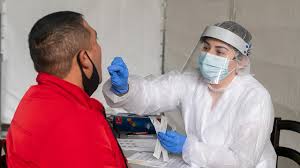 physician's clinical judgment to ultimately diagnose the disorder.
physician's clinical judgment to ultimately diagnose the disorder.
Insulin-like Growth Factor is the most efficient means of diagnosing HGH Deficiency because Human Growth Hormone is converted into IGF-1 by the liver quickly after HGH is released into the bloodstream.
Testing directly for blood-serum HGH levels is insufficient because the human body has the ability to convert Human Growth Hormone into other derivatives incredibly quickly, only in a matter of minutes.
IGF-1 levels remain reasonably stable over time, remaining in the bloodstream for a few days. This allows clinical specialists to infer HGH Deficiency through a deficiency of IGF-1.
Although IGF-1 Testing is the most effective way to test for HGH Deficiency outside invasive medical procedures, the best way to ultimately discover Human Growth Hormone Deficiency is retroactively by providing Human Growth Hormone HRT and monitoring for positive effects that result.
How is HGH Released by the Body?
Human Growth Hormone is released in small pulses from the pituitary gland throughout the day. HGH is primarily secreted at night during the deepest hours of sleep. It is also released during periods of heavy physical exertion, such as exercise.
HGH levels in the bloodstream vary widely depending upon the time of day and time since the last secretion, and directly testing Human Growth Hormone levels provide little to no valid data for the diagnosing physician.
Adults in their twenties generally have IGF-1 levels at 350 ng/ml. It is not uncommon for many young and healthy patients to have significantly higher HGH levels. As we age, endogenous Human Growth Hormone levels decline slowly and steadily.
The medical diagnostic firm LabCorp has published that in their testing, the average IGF-1 level of a healthy twenty-year-old is 371 ng/ml. This level drops precipitously throughout the lifespan, and by the age of eighty, the average endogenous Human Growth Hormone level is 131 ng/ml.
HGH Hormone Replacement Therapy Widely Sought After despite Cost and Injection
Human Growth Hormone is a relatively costly medical regimen, though it becomes more affordable by the year. In addition, HGH Hormone Replacement Therapy can only be provided through injection, which many patients find to be somewhat troublesome.
Given this combination of potential (non-medical) downsides, it is doubtful that individuals would stick to therapy of this kind if they did not experience significantly beneficial effects commonly perceived to be worth the cost and effort of daily injection.
In addition, studies have shown definitively that the benefits resulting from HGH Hormone Replacement Therapy are not the result of the placebo effect. It isn't merely the effort and cost of the therapy that encourages you to live healthier, but Human Growth Hormone actually has the ability to substantiate significant health improvements.
If you doubt the effectiveness of HGH Hormone Replacement Therapy, you are encouraged to utilize the therapy for a series of months to encourage positive physiological change.
After undergoing therapy, take some time off for a few months and see if you can sustain the positive gains from HGH injections. If you notice that the benefits slowly go away over time, this proves that the Human Growth Hormone Shots have improved your health, which should encourage you to re-institute therapy.
HGH Mischaracterized
Human Growth Hormone has been improperly mischaracterized by the media and the general populace at large. It is widely agreed that Testosterone Deficiency, Estrogen Deficiency, Thyroid Insufficiency, and several different hormone deficiencies are treatable conditions, but there continues to be an unwarranted stigma surrounding HGH Hormone Replacement Therapy.
Although the international medical community is warming up to the idea that HGH Deficiency is a symptomatic and treatable disorder, the American medical community lags far behind.
Because of this, large-scale acceptance of HGH Hormone Replacement Therapy is gaining more support domestically than abroad.
Endocrinologists from the United States have tended to brush aside or ignore the growing body of clinical data being collected worldwide, which shows that Human Growth Hormone Replacement Therapy can be a highly useful and beneficial Anti-Aging Longevity Treatment.
American Professional Perception of HGH Warped by Politics
There is evidence that suggests that the reason that domestic endocrinologists shy away from Human Growth Hormone may be more political than medical in nature. Because of the current nebulous state of HGH Hormone Replacement Therapy in the American medical community, Medicare and many other insurance companies do not cover the use of HGH Hormone Replacement Therapy, even for the use of legitimate medical disorders.
Another reason that the American medical community is wary of Human Growth Hormone injections is that it is aware of the considerable market for illicit Human Growth Hormone by bodybuilders, professional and Olympic athletes, among other patients who wish to abuse HGH Hormone Replacement Therapy for their own aesthetic gain at the risk of their own personal long-term health.
These individuals tend to take doses that far exceed the recommended guidelines for HGH Hormone Replacement Therapy, and as a result, these users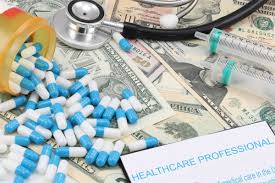 tend to experience a highly inflated risk of side effects about the incredibly safe usage of HGH for Hormone Deficiency.
tend to experience a highly inflated risk of side effects about the incredibly safe usage of HGH for Hormone Deficiency.
In addition, black market sources of Human Growth Hormone are incredibly suspect. Often, these sources of Human Growth Hormone have no quality assurance, and there are no easy means to detect the purity of the hormone.
HGH is highly sensitive to both temperature change and agitation, and as a result, Human Growth Hormone, even when pure, is often not viable unless provided by a reliable and highly professional source.
Many of these illegal sources of HGH and HGH Supplements are international suppliers who do not commit to quality and domestic pseudo-pharmacists who may literally be mixing Human Growth Hormone Injections in bathtubs and sinks.
Avoid Potential Pitfalls-Only Acquire HGH From Licensed and Official Medical Sources
All of this can be avoided by seeking legitimate sources of Human Growth Hormone for treating diagnosed HGH Deficiency.
Medical clinics such as the Conscious Evolution Institute only provide medications of the highest quality from highly trusted sources. Although Bio-Identical HGH is sent straight to your door, we only utilize responsible shipping companies such as FedEx, which will ensure that your product remains refrigerated and insulated from agitation during shipment.
Although both medical professionals and legislative authorities have the right to recommend against the use of HGH for performance enhancement, we feel that Human Growth Hormone Replacement Therapy is incredibly over-legislated, and the medical community should look at the treatment more honestly to provide Americans with the best health care options available in the world.
Recent international clinical research shows that HGH Hormone Replacement is highly effective and is a shallow risk.
The Conscious Evolution Institute for HGH Anti-Aging Hormone Replacement Therapy
The Conscious Evolution Institute is a licensed Anti-Aging Clinic with board-certified physicians and clinical specialists with the medical experience and authority to provide HGH Hormone Replacement Therapy.
We only provide FDA-certified Human Growth Hormone. Our HGH injections are produced legitimately by well-known pharmaceutical companies. Always check the label of your HGH Hormone Replacement Therapy. FDA-approved Human Growth Hormone will have an NDC code printed directly on the label.
Avoid Imitation HGH
Avoid Human Growth Hormone Releasers and Stimulators. Although many unscrupulous companies may claim that these drugs can provide the same benefits as HGH Hormone Injections, these medical supplements are highly suspect and can even be dangerous. Human Growth Hormone cannot be taken orally.
HGH is the most significant hormone molecule produced by the human body and is highly reactive with stomach acids. Taking HGH pills orally will simply break down the Human Growth Hormone in the stomach, preventing the body from realizing the potential benefits.
In addition, the liver will have trouble metabolizing the broken down HGH components, which can lead to liver damage over time. Other Human Growth Hormone Releasers contain amino acid chains which purport to influence the production of Human Growth Hormone.
Although certain amino acids contribute to the secretion of HGH, they can also affect organ systems in other body parts.
Also, the HGH benefits provided by these amino acids decrease quickly with time while potentially damaging the liver.
The only clinically safe medical way to increase Human Growth Hormone production is through HGH injections and Sermorelin Acetate Injections. There are methods involving nutrition and exercise that can bolster Human Growth Hormone production, but there is no simple pill or shake that can reproduce the benefits of HGH Shots.
Safe HGH Dosage Recommendations
Effective and safe doses of Human Growth Hormone HRT are administered in a range from four to fourteen units per week. The most prescribed dosage for HGH Hormone Replacement is one unit per day at least four times a week and up to seven times per week.
Many physicians recommend taking one day off per week, especially for younger patients with a significant (though clinically low) level of endogenous Human Growth Hormone secretion.
The maximum daily value that has been deemed safe is considered two units per day. Even though two units per day is considered safe, there is a small risk for reversible and minor side effects at this level. Unless you are experiencing severe effects of HGH Deficiency or your endogenous HGH levels are incredibly low, the initial dose of Human Growth Hormone per injection is one unit.
Human Growth Hormone Contraindications
Severe critical illness which requires continuous treatment
Active malignant tumor (precautionary-there is no evidence that HGH Hormone Replacement Therapy agitates existing tumors)
Retinopathy as a result of diabetes (one case in which HGH Hormone Replacement Therapy may have exacerbated the condition)
Carpal Tunnel (Cellular rehydration can aggravate existing symptoms. Carpal Tunnel cannot be caused by Human Growth Hormone HRT)
Adult Precautions
Neoplasm: Although there is no evidence that HGH Hormone Replacement Therapy can cause existing tumors to grow, it is essential to actively monitor tumors while using the treatment to ensure no malignancy develops.
Diabetes or Insensitivity to Glucose: Patients with Diabetes who use Human Growth Hormone Therapy are urged to monitor blood glucose very carefully.
Taking multiple drugs which have the potential to prevent hypoglycemia may result in the patient needing a higher dose of HGH to optimize potential benefits. There should be no adverse interaction between insulin and Human Growth Hormone at recommended reasonable dosage.
Intracranial Hypertension: Human Growth Hormone abuse and overdose has been linked to headaches and increased intracranial pressure. Reevaluating dosage or discontinuing therapy has been shown to reverse the symptoms completely.
Edema and fluid retention: if excess fluid retention occurs due to HGH Deficiency, temporarily suspend treatment or reduce the dosage. This side-effect can be effectively negated by titrating the dosage until symptoms no longer occur. When HGH Hormone Therapy begins, it may take the body a short time to adjust to changes in cellular hydration.
Carpal Tunnel Syndrome: Carpal Tunnel Syndrome is rare but generally occurs at higher doses. It is not believed that HGH Injections cause Carpal Tunnel but that the underlying condition is brought to light or exacerbated. This condition is reversed or generally alleviated with changes in HGH Injection Dosage.
Hypothyroidism: If HGH Deficiency is not the result of Hypothalamic Insufficiency but because of a thyroid condition, HGH Injections may cause symptoms of hypothyroidism to worsen.
When testing for HGH Deficiency, it is also essential to test for Hypothyroidism to ensure that any thyroid issue is taken care of before instigating HGH Hormone Injections.
Use Human Growth Hormone Responsibly
Before engaging in HGH Hormone Replacement Therapy for the first time, a medical professional fully instruct the patient on how to inject HGH in a safe and sterilized manner, maximizing the effectiveness of the drug treatment while minimizing the risk of infection due to medical or needle mismanagement.
Patients should not have consent to self-administer Human Growth Hormone shots until the physician fully recognizes that the patient can confidently and safely do so.
HGH and Other Forms of Hormone Replacement Therapy from the Conscious Evolution Institute
Human Growth Hormone is a safe and effective means to alleviate and reverse many of the effects of the aging process. The Conscious Evolution Institute specializes in Hormone Replacement Techniques, which include Human Growth Hormone, Sermorelin Acetate, and Testosterone, among other 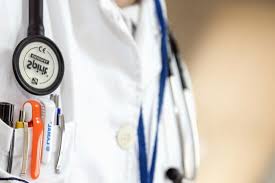 highly effective and beneficial hormone treatments.
highly effective and beneficial hormone treatments.
If you feel that you may be a potential candidate for Hormone Replacement, the Conscious Evolution Institute has a staff of fully trained specialists and affiliate physicians who can make your diagnosis and treatment a breeze.
If you'd like to discuss treatment options or simply learn more about the treatments and medical and lifestyle services we offer, we encourage you to call or contact us today.
HGH Hormone Replacement Therapy is safe, legal, and can change your life today!
- Chinese Human Growth Hormone Abuses [Last Updated On: January 9th, 2025] [Originally Added On: December 15th, 2020]
- About HGH Sprays [Last Updated On: March 14th, 2025] [Originally Added On: December 16th, 2020]
- Human Growth Hormone Pills And Sprays Are A Bad Idea And Don't Work [Last Updated On: January 7th, 2025] [Originally Added On: December 17th, 2020]
- The Potential Dangers Of Human Growth Hormone Abuse [Last Updated On: January 6th, 2025] [Originally Added On: December 19th, 2020]
- Drugs Banned From Sports [Last Updated On: February 14th, 2025] [Originally Added On: December 20th, 2020]
- The Story Behind Operation Raw Deal [Last Updated On: January 6th, 2025] [Originally Added On: December 21st, 2020]
- Limits Of Ped Testing In The Olympics And Professional Athletics [Last Updated On: February 18th, 2025] [Originally Added On: December 22nd, 2020]
- “HGH” Supplements Can Be Deceptive [Last Updated On: July 6th, 2024] [Originally Added On: August 30th, 2022]
- Performance Enhancement Drug Testing: The Challenges and Future Developments in the Olympics and Professional Athletics [Last Updated On: February 11th, 2025] [Originally Added On: February 16th, 2025]
Word Count: 5089







